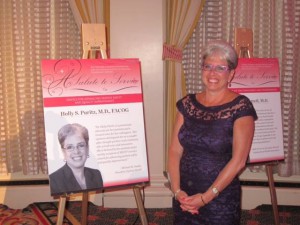TGFW now offering the MonaLisa Touch
As many as 50% of postmenopausal women are suffering from changes to their vaginal health. When estrogen levels decline after menopause, many changes can occur. Some of these changes include vaginal dryness, painful intercourse, burning or itching. Millions of women experience changes in their gynecologic health that interfere with their personal lives as a consequence. Do you suffer silently?
We are proud to now be able to offer MonaLisa Touch laser therapy. MonaLisa Touch laser treatment helps restore vaginal health by generating NEW collagen, elastin and vascularization in the vaginal tissue. Gentle laser energy is delivered to the vaginal wall tissue that stimulates a healing response in the vaginal canal in 3 easy, painless treatments 6 weeks apart. Each procedure takes less than 5 minutes that delivers both immediate and lasting relief that’s clinically proven to work.
MonaLisa has been described as “life-changing” by thousands of women treated since 2012. Ask your doctor if MonaLisa Touch is right for you by calling our office today at 757-466-6388 x103.
MonaLisa Touch is fast, simple and safe:
- Procedure takes less than 5 minutes
- Gentle laser energy is delivered to the vaginal wall tissue in 3 easy treatments, 6 weeks apart.
- In-office treatments that require NO anesthesia
- Minimal side effects with no downtime
https://youtu.be/a2-LuHbmCtM
Frequently asked questions:
Q: What happens during the treatment?
A: The procedure will seem similar to your annual exam, and will likely by even quicker. Your healthcare provider will insert the laser probe and deliver laser energy “pulses.” The total procedure time is less than 5 minutes.
Q: Does it hurt?
A: The laser energy itself is virtually painless. Some patients report mild discomfort with the laser probe insertion during the first treatment if there is gynecologic dryness.
Q: How soon can I expect results?
A: Many patients have reported relief right away. Virtually all patients have experienced relief by the second treatment, however optimal results are seen after the third treatment.
Q: How long does treatment last?
A: MonaLisa Touch provides lasting results. A once a year single treatment is recommended to maintain symptom relief.
Q: Is this procedure safe for Breast Cancer patients?
A: Yes, the MonaLisa Touch therapy is particularly well suited for patients who cannot, or prefer not to receive estrogen therapy.
Q: What are my limitations after the procedure is done?
A: Patients should refrain from sexual activity for 2-3 days. Your doctor will determine a post-procedure regimen that is right for you.
Q: How much will the procedure cost?
A: Contact our office for additional information at 757-466-6388 x103




 The Hormonal IUD:
The Hormonal IUD:


